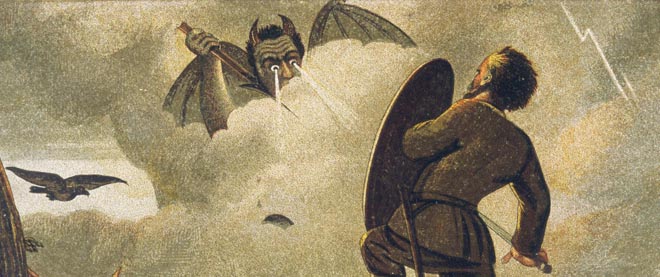100,000 stories later, author of ‘The Shack’ is back with new novel
Bestseller William Paul Young returns with Cross Roads
Mary Evans Picture Library/CP
Share

When one of the world’s bestselling novelists dropped by a deserted strip mall in suburban Toronto recently, he was unperturbed to find just four people waiting for him in a Christian bookstore. As long as there is anyone at all to hug—as he does with everyone he meets—and to share stories with, William Paul Young is more than content. Story is everything for Young: the personal tale of childhood pain, adult brokenness and spiritual healing he poured five years ago into The Shack; the story of that novel’s astonishing explosion from 15 copies printed at a Kinko’s to 18 million copies sold worldwide; and the 100,000 stories he has collected from readers. He doesn’t even mind that the people he meets barely spare a word for Cross Roads, the new novel he is—in theory—promoting. For Young, the fact that everyone wants to talk about their response to The Shack is neither surprising nor truly his doing: The Shack phenomenon is primarily a matter, says the grinning author, of “God’s sense of humour.”
Young, 57, never used to find God and his ways funny, or have much to laugh about at all. Born in Grande Prairie, Alta., but raised by his missionary parents in Dutch New Guinea, Young was sexually abused by some of his parents’ congregants, and again later, at a Christian boarding school. As an adult, Young kept his past and his feelings of shame and worthlessness secret, bundling it all into his metaphorical shack, “the place we make to hide all our crap.” Until, at 38, the crisis came, when Young’s wife, Kim, discovered his affair with one of her best friends. He realized he couldn’t hide any longer and had to somehow restore his relationships with Kim, with God and with himself.
It took him 11 years, but he managed. And he created Mack, The Shack’s protagonist, whose five-year-old daughter, Missy, was murdered. Years later, Mack, as angry and despairing as Young had been, finds a note in his mailbox—a note from God—inviting him back to the wilderness shack where Missy died. He’s greeted at the door by God, in the guise of a plump, middle-aged black woman incongruously known as Papa. Mack soon meets the rest of an unusual Holy Trinity: a sawdust-covered, olive-skinned Jesus, and the Holy Spirit, an Asian woman called Sarayu. Together, enveloping him in their loving relationship, they heal Mack.
Some Christian leaders reacted favourably. One even likened the book in its galvanizing effect on the faithful to The Pilgrim’s Progress, John Bunyan’s 17th-century allegory in which the Everyman protagonist, Christian, meets characters like Obstinate and Mr. Worldly Wiseman, and battles against the archdevil Apollyon. (Bunyan’s influence is actually more overt within Cross Roads, where the hard-edged Anthony Spencer, awakens within his cerebral hemorrhage-caused coma and wanders the blasted heath of his soul, encountering brutes named Bluster and Ego.) Many more doctrinaire Christians, however, were outraged by Young’s “ungendered” Trinity and by what they saw as New Age taint. “My own mother slammed the book shut when Papa opened the shack door,” laughs Young, “and immediately phoned my sister: ‘Debby, he really is a heretic!’ ” But the response of ordinary Christians was viscerally positive.
Young’s personal shack was an evil place, but not the one two readers showed him in photos at a Midwestern book signing. The grief-ravaged couple, who had lost their daughter to a drunk driver, were on an aimless road trip when they saw it, a building standing alone in a field, sporting a sign reading “the Shack.” Intrigued, they went in to find a yellow legal pad with the instruction to “Take what you need,” and two worn copies of The Shack. The wife did take one; “it saved my life,” she tearfully told Young. The Shack has brought him a lot, including wealth enough to support his family—he had been working three jobs—and to build a house for a Honduran orphanage, a school in Uganda and to fund several charities in Portland, near his Oregon home—but none he treasures as much as those 100,000 stories.